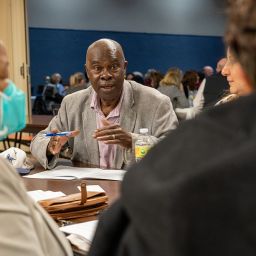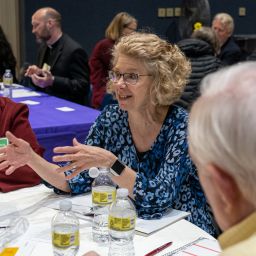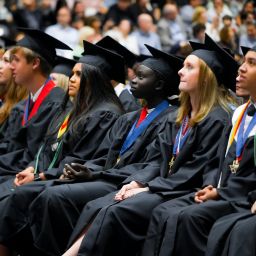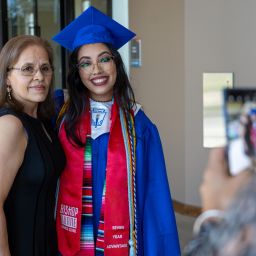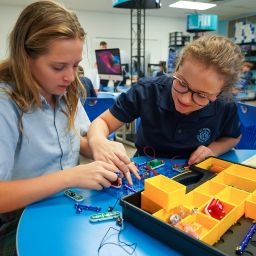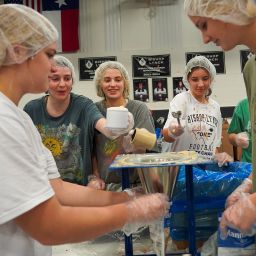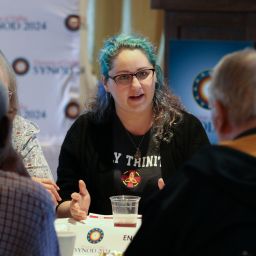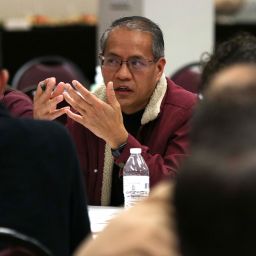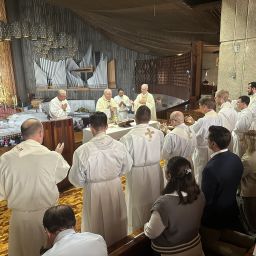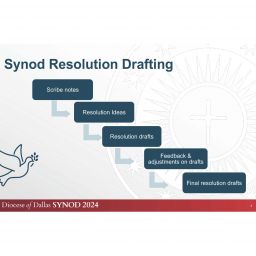By Lacy de la Garza
Special to The Texas Catholic
The historic COVID-19 pandemic impacted all aspects of our lives. It was a time of great uncertainty, and many lives were upended. Businesses, restaurants, schools, and even churches shut their doors. In response to the pandemic, as the shepherd of our diocese and with our best interest in mind, Bishop Burns prayerfully called for the third diocesan synod of Dallas to be held in 2024.
As a result, in 2022 the Diocese of Dallas began hosting a series of listening sessions to prepare for the actual synod assembly in 2024. These sessions allow us to listen to the people of God, inviting everyone — Catholic, non-Catholic and non-practicing Catholic — to attend and share their voice in this synodal process. To date, the diocese has held 15 such listening sessions, focusing on topics ranging from vocations to evangelization to marriage and family to Catholic social and moral teaching. Our listening sessions continue through October 2023, when we will then go into a year of preparation by writing what will be discussed and voted upon with a consultative vote at the actual assembly in 2024.
On March 25, Bishop Burns is calling the faithful to again join us for a critically important listening session as we discuss and discern the topic of Catholic education. Come join us and let’s discuss how to support parents and how we can support families — whether they send their children to public, private or Catholic schools or they choose to homeschool. The listening session will cover Catholic education from pre-Kindergarten through university, and it is important to note this is not just limited to Catholic schools.
As in the past, the listening session will include small-group discussions centered on questions developed by the Synod Preparatory Commission. The questions for this session are:
Catholic families and participants in Catholic education
- Parents are the primary educators for children. How can parents be better prepared for and supported in this role, regardless of whether their child is in Catholic school, public school, private school, or homeschooled?
- What do you see as the biggest obstacle to forming children in the faith through education, including, but not limited to, those attending Catholic schools?
- What contributed to your decision to select or not select Catholic schools for your child? If you are in school now, what contributed to your decision to attend or not attend a Catholic school for yourself?
- In an ideal world, what does affordability look like for Catholic schools? How do we best balance affordability for families with the need to provide just wages to teachers and administrators?
- What are concrete ways that Catholic parents and Catholic educators can prepare students for continually living lives of faith?
- What concerns do you have about Catholic education that were not previously addressed in another question? What solutions do you propose for these concerns?
Student formation, teachers, and school administration
- How do the Catholic schools you are involved with encourage and support parents as the primary educators of their children?
- If you attended or are currently attending a Catholic school, what stays with you today from your education as most impactful? If you did not attend a Catholic school, what is something you might want to share about the education you received?
- How can the quality of education at Catholic schools be justly resourced across the Diocese?
- What tangible actions can Catholic schools take to outwardly live their Catholic identity? How can these schools avoid the temptation to “keep up” with private schools if such action is detrimental to their Catholic identity?
- What are ways that all students at all ages can positively contribute to the efforts of evangelization and service in the Diocese of Dallas?
- How can those on the peripheries be better served by Catholic schools? What could be done to bring the poor, the immigrant, those who learn differently and those with disabilities into the community of a Catholic school?
- How might the Diocese of Dallas ensure enough teachers are available, well-prepared, and willing to teach in Catholic schools? And how can those teachers continue to be supported with financial incentive, training, Catholic formation, emotional and spiritual support?
- What concerns do you have about Catholic education that were not previously addressed in another question? What solutions do you popose for these concerns?
Community members with relationships with Catholic schools
- What are tangible solutions to building better connections between Catholic parishes and schools?
- What kind of partnerships or collaboration do you see as imperative for a Catholic school to have, particularly for the needs that arise during school hours, after school hours, in the summers, and on school breaks?
- The Diocese of Dallas is blessed with the presence of the University of Dallas. How is the University of Dallas contributing to the life of the church in this Diocese, and how might that contribution continue to improve?
- Where do you see opportunities for the Diocese to make better use of the existing programs and services offered by the University of Dallas?
- What concerns do you have about Catholic education that were not previously addressed in another question? What solutions do you propose for these concerns?
This is a truly relevant topic, and we want to hear from everyone impacted by Catholic education. This session is open to everyone who has an opinion of Catholic education including but not limited to Catholic schools.
If you are a teacher, a student, an administrator, a young adult in college or grad school, a board member, an alum of Catholic schools, a parent, or even if your children don’t go to Catholic schools…all are welcome. The session will be held from 10 a.m. to 1 p.m. March 25 at the University of Dallas in Irving. Register at www.cathdal.org/synod.
Your voice and your experiences matter.
Lacy de la Garza is the chair of the Diocese of Dallas Synod Preparatory Commission.


